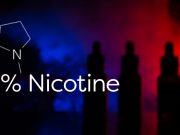Juul has been incessantly accused by lawmakers, health entities and angry parents alike, of fueling the current alleged teen vaping “epidemic”. Since its merger with Altria, the manufacturer has understandably lost credibility as having harm reduction at heart.
To this effect in the past months, the San Francisco-based manufacturer has been the recipient of multiple lawsuits from different entities. One of the latest ones has been by the state of Pennsylvania, whose Attorney General Shapiro has accused Juul of misleading the public and seeking a statewide ban on all Juul products, including tobacco-flavored ones.
Study on Juul’s presence on social media
The researchers set in place search filters to collect Juul and other ENDS-related data from Twitter from 2017 to 2018, using Gnip Historic PowerTrack. “Trained coders labelled random samples for Juul and ENDS relevance, and the labelled samples were used to train a supervised learning classifier to filter out irrelevant tweets. Tweets were geolocated into US counties and their fitness for use was assessed,” explained the study Abstract.
The compiled data indicated that the amount of Juul-related tweets increased by 67 times during this period (from 18, 849 in the first quarter of 2017, to 1, 287, 028 in the last quarter of 2018). Subsequently, by the last quarter of 2018, 34% of US counties had more than 6 Juul-related posts per 10, 000 people, up from 0% in the first quarter 2017. However, during the same period, the total non-Juul e-cig-related tweets had decreased by 25%.
Juul’s presence grew in line with the business’s expansion
The researchers concluded that despite the FDA interventions and multiple lawsuits against the manufacturer, Juul’s presence on Twitter and social media in general, grew exponentially and spread across the entire country, in line with the time when the brand was expanding.












